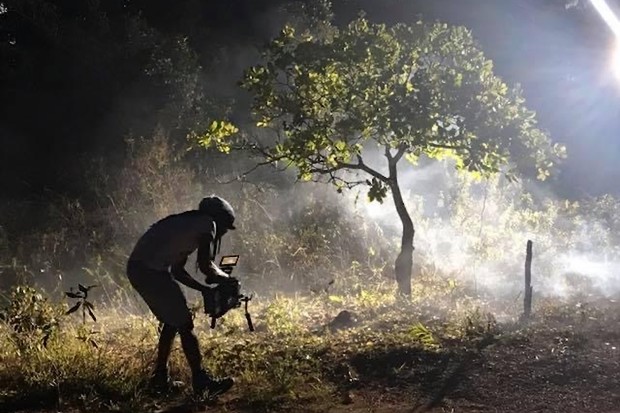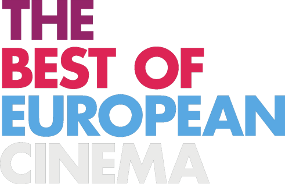Locarno 2023 - Locarno Pro
Industry Report: Produce - Co-Produce...
REPORT: Open Doors @ Locarno Pro 2023
We take a closer look at some of the Caribbean and Latin American projects co-produced with European partners taking part in the industry initiative organised by the Swiss festival

For the second year in a row, Locarno Pro has hosted its Open Doors programme with a focus on under-represented countries in Latin America and the Caribbean. Cineuropa took a closer look at five of the showcased projects.
The Star – Alejandro Alonso Estrella (Cuba/Spain/France/USA)
“Our film combines documentary and fantasy elements to tell the story of Pitufo, a young Cuban shipbreaker who dreams of escaping the remote bay where he spends his days amidst metal and fire. In search of his freedom, he embarks on a labyrinthine journey to the swamps of Florida,” said producer Daniela Muñoz of Havana- and Madrid-based Estudio ST. “Taking part in Open Doors could be a turning point for our film: it would give visibility and international recognition to the project, introducing it to the global market. Our main priority is to increase the possibilities of financing and international support, so that we can move on to the next stage. We believe participating in person has been strategic to make contact with European co-producers, sales agents, international broadcasters and distributors best suited for this story,” she added. The feature is co-produced with Boris Prieto of France’s Vega Alta, and Luis Gutierrez and Zaina Bseiso of US-based Bahia Colectiva.
You Can Read, Can’t You? - Ananta Khemradj (Suriname/Netherlands)
Set in “a country where the former dictator is elected president, helped by young voters” and “youngsters don’t seem to understand or care about the atrocities committed during the military rule in the 1980s,” the movie zooms in on “one unlikely young journalist [who] does care.” That journalist is Khemradj herself, who wants to know why she and her generation grew up without this knowledge. In order to move forward, she asks herself: Does a society need to come to terms with its past? “My films are about confronting the past and finding ways to heal as a nation. Being part of Locarno and meeting other daring filmmakers from the Caribbean and South America helped me to realise that through film we might be able to heal as a community across the whole region, and not just within Suriname,” the director told Cineuropa. The 49-minutes doc was produced by The Back Lot (Suriname) and Pieter van Huystee Film and Television (Netherlands).
Hidden World – Kenrich Cairo (Suriname/Netherlands)
“He is the last in the village that knows how to communicate with the ancestor spirits to keep the harmony and prevent misfortune. Since Amoksi is getting old, it is time to transfer his ancient know-how to his son Michael,” reads the synopsis of the Moengo-born filmmaker’s 32-minute doc. This project too was produced by The Back Lot and Pieter van Huystee Film and Television. It is distributed by Amstelfilm and TBL Cinemas. “I am looking for co-producers who get a taste for spirituality and African culture. I’m also looking for funding or small grants for some other projects I’m busy with,” Cairo revealed to us. Among his new endeavours is a series/feature project called Boni, made by filmmakers with African roots and revolving around the titular freedom fighter.
The Language of Water – Gregorio Rodríguez (Dominican Republic/Peru/France/Venezuela)
“I’m working on a documentary with a narrative structure, the story of Jofris, the last speaker of an indigenous community from Venezuela. We have support from UNESCO through a programme dedicated to the endangered indigenous languages. When you lose one language, you see one way to see the world,” Rodríguez explained.
“I’m working on this project because it’s important to understand [the concept of] ‘being endangered’ doesn’t apply only to animals and plants. Languages are also endangered and every month we lose one. Indigenous languages in particular are related to the environment of a community, and the relation that community has with it. The loss of a language is also related to other problems such as forced displacements, deforestation and the shame of one’s indigenous roots,” he added.
The feature is produced by the director Gregorio Rodríguez for Casa Latina Films (Dominican Republic), Jaisia Figueroa for Empresa Distribuidora Cinematográfica Nomada (Peru), Lucie Rego and Pauline Tran Van Lieu for Hutong Productions (France), and Jeissy Trompiz for Alamar Films (Venezuela). The project, now in advanced development with roughly 30% of the footage already in place, is looking for an impact producer, sales agents and distributors.
Three Bullets – Génesis Valenzuela (Dominican Republic/Spain)
In 1992, Dominican immigrant Lucrecia Pérez was brutally murdered by four neo-Nazis in Madrid, Spain. The case was considered the first racist and xenophobic murder in Spanish history and changed the country’s judicial system. “At the same time, ironically, Spain was celebrating the 500th anniversary of its colonial empire. That coincidence is the actual ‘seed’ of this film. Here, Génesis identifies how the two events are linked – one is the cause of the other, but the society struggles to realise it,” said producer Wendy P Espinal, of Colectivo Cinematográfico 81 (Dominican Republic) during our chat in Locarno.
Espinal and Valenzuela met for the first time in Spain, and have been working together since then. “The story of Lucrecia and Vicente Noble – her town and a character from which the film is born from – is a story that I always wanted to tell. I was very aligned with Genesis’ approach and point of view. I think she’s a talented filmmaker and a voice I want to accompany along the way,” revealed Espinal.
Valenzuela highlighted how the movie is urgent owing to the growing influence of right-wing governments, whose ideas have once again put “discrimination in terms of race, gender and class” at the centre of the debate.
“The project has been well received here, we got good feedback. We’re finding allies,” they concluded, adding how Locarno has been an important place to share their work with other filmmakers and industry players from Latin America and Europe.
The attached co-producers are Luis Miñarro for Barcelona-based Eddie Saeta, and David Baute for Tenerife-based Tinglado Films.
Did you enjoy reading this article? Please subscribe to our newsletter to receive more stories like this directly in your inbox.















